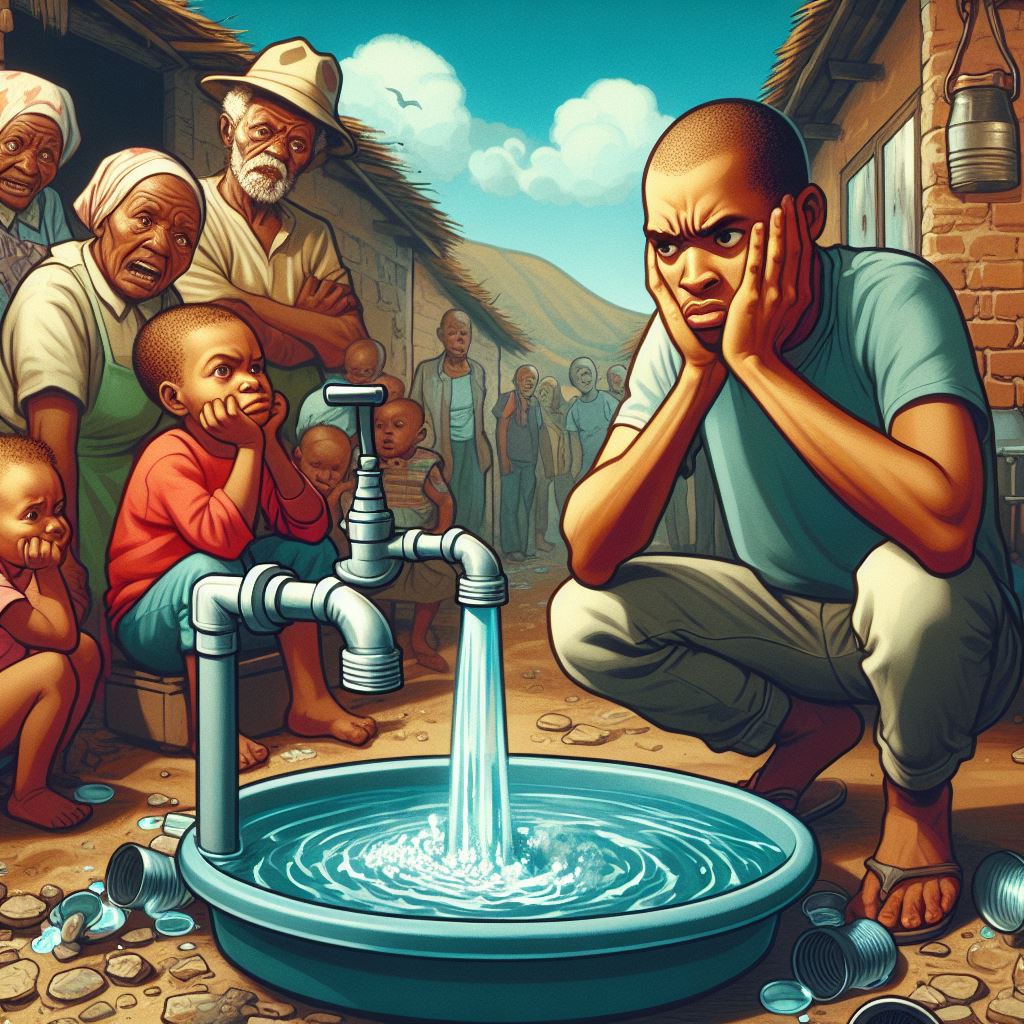Access to clean and reliable water is a fundamental human right, yet many communities in South Africa continue to face challenges related to water scarcity and inadequate infrastructure. In areas where water services are disrupted or unavailable, temporal measures such as water tankers are often deployed to provide temporary relief to affected communities. In this essay, we will evaluate the role played by temporal measures such as water tankers to provide temporary relief to areas affected by a lack of water services in South Africa, considering both the benefits and limitations of this approach.

Introduction
Water tankers are mobile vehicles equipped with large tanks that are used to transport and distribute water to communities facing water shortages or disruptions in service. While water tankers can provide temporary relief to areas affected by a lack of water services, they are often seen as a short-term solution to a long-term problem. In this essay, we will examine the effectiveness of water tankers in addressing water scarcity in South Africa, considering factors such as accessibility, reliability, and sustainability.
Benefits of Water Tankers
Immediate Relief in Emergencies
One of the primary benefits of water tankers is their ability to provide immediate relief to communities facing water shortages or disruptions in service. In emergencies such as droughts, pipe bursts, or infrastructure failures, water tankers can quickly mobilize to deliver water to affected areas, ensuring that residents have access to clean and safe drinking water.
Flexibility and Mobility
Water tankers offer flexibility and mobility, allowing them to reach remote or isolated communities that may be difficult to access by conventional means. This flexibility is particularly important in rural areas or informal settlements where water infrastructure may be limited or non-existent. By transporting water directly to communities in need, water tankers can ensure that even the most underserved populations have access to essential water services.
Limitations of Water Tankers
Short-Term Solution
While water tankers can provide immediate relief in emergencies, they are often viewed as a short-term solution to a long-term problem. Relying on water tankers for extended periods can be costly and unsustainable, as it does not address the underlying issues of water scarcity or inadequate infrastructure. In many cases, communities may become dependent on water tankers, leading to a cycle of temporary relief without lasting solutions.
Limited Capacity and Accessibility
Water tankers have limited capacity and may not be able to meet the needs of large or densely populated communities. In areas with high demand for water, such as urban townships or informal settlements, water tankers may struggle to deliver sufficient quantities of water to meet the needs of residents. Additionally, access to water tankers may be limited for communities located in remote or hard-to-reach areas, further exacerbating disparities in access to water services.
Case Studies and Examples
Cape Town Water Crisis
During the Cape Town water crisis in 2017-2018, water tankers were deployed to provide emergency relief to residents facing severe water shortages due to drought and dwindling reservoir levels. While water tankers helped alleviate immediate water needs, they were unable to fully address the underlying causes of the crisis, such as unsustainable water consumption patterns and inadequate infrastructure. The crisis highlighted the limitations of relying on temporal measures such as water tankers for long-term water management.
Informal Settlements in Johannesburg
In informal settlements such as Alexandra in Johannesburg, water tankers are a common sight, providing essential water services to residents living in informal dwellings without access to piped water. While water tankers play a crucial role in ensuring that residents have access to water, they are often unable to meet the high demand for water in densely populated areas. Additionally, access to water tankers may be sporadic or unreliable, leaving residents vulnerable to water shortages and disruptions.
Conclusion
In conclusion, temporal measures such as water tankers play a vital role in providing temporary relief to areas affected by a lack of water services in South Africa. While water tankers can provide immediate relief in emergencies and reach remote or isolated communities, they are not a sustainable solution to long-term water management challenges. To address water scarcity and inadequate infrastructure effectively, South Africa must invest in comprehensive water management strategies that prioritize sustainability, equity, and resilience. This includes upgrading and expanding water infrastructure, promoting water conservation and efficiency measures, and ensuring that all residents have access to reliable and affordable water services. While water tankers can help bridge the gap in the short term, lasting solutions require a holistic and integrated approach to water management that addresses the root causes of water scarcity and ensures equitable access to water for all.
